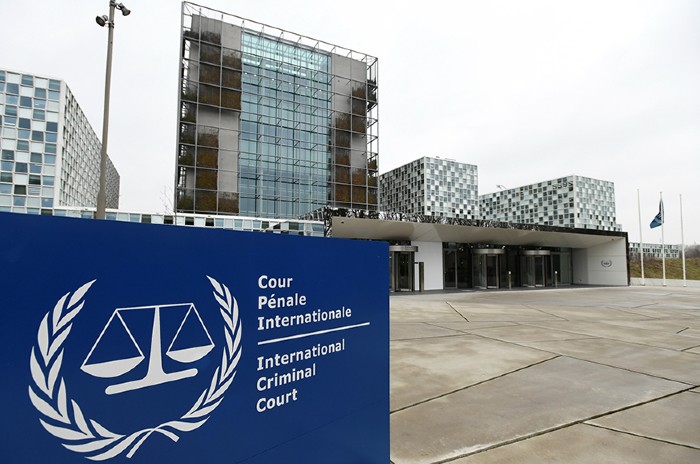 * Governed by an international treaty called 'The Rome Statute', the ICC is the world’s first permanent international criminal court.
* Governed by an international treaty called 'The Rome Statute', the ICC is the world’s first permanent international criminal court.
* It investigates and, where warranted, tries individuals charged with the gravest crimes of concern to the international community: genocide, war crimes, crimes against humanity and the crime of aggression.
* Through international criminal justice, ICC aims to hold those responsible for their crimes and to help prevent these crimes from happening again.
* India is not a party to Rome Statute along with US and China.
* Recently Malaysia has ratified the Rome Statute and became the 124th State party to the ICC.
History
* On 17 July, 1998 Rome Statute was adopted by 120 States in direction of creating a more just world.
* On 1 July, 2002 Rome Statute took effect upon ratification by 60 states, officially establishing the ICC. Since it has no retroactive jurisdiction, the ICC deals with crimes committed on or after this date.
* After 2010 amendments – the Rome Statute also sets new standards for victims' representation in the Courtroom and ensures fair trials and the rights of the defence.
* Today the ‘Rome Statute’ serves as the ICC's guiding legal instrument, which is elaborated in such other legal texts as the Elements of Crimes, Rules of Procedure and Evidence and more.
Facts and Figures
* Today the ICC has over 900 staff members from approximately 100 States.
* It has 6 official languages: English, French, Arabic, Chinese, Russian and Spanish.
* ICC has 6 field offices: Kinshasa and Bunia (Democratic Republic of the Congo, "DRC"); Kampala (Uganda); Bangui (Central African Republic, "CAR"); Nairobi (Kenya), Abidjan (Côte d'Ivoire).
* It has 2 working languages: English and French.
* ICC Headquarters at The Hague, the Netherlands.
* There have thus far been 27 cases before the Court, with some cases having more than one suspect.
* 16 people have been detained in the ICC detention centre.
* The judges have issued 8 convictions and 3 acquittals.
Organisation Structure
* The Assembly of States Parties provides management oversight for the Court, including electing judges and the Prosecutor and approving the ICC’s budget.
* Four organs of the ICC
1. Presidency conducts external relations with States, coordinates judicial matters such as assigning judges, situations and cases to divisions, and oversees the Registry's administrative work.
2. Judicial Divisions (18 judges in 3 divisions) Pre-Trial, Trial and Appeals – conduct judicial proceedings
3. Office of the Prosecutor (OTP) conducts preliminary examinations, investigations, and prosecutions.
4. Registry conducts non-judicial activities, such as security, interpretation, outreach, support to Defence and victims' lawyers etc.
* Trust Fund for Victims provides assistance, support and reparations to victims.
* The ICC has field offices in several of the countries in which investigations are being conducted.
* The ICC detention centre is used to hold in safe, secure and humane custody those detained by the ICC.
* The International Committee of the Red Cross (ICRC) is the Detention Centre's inspecting authority and as such has unrestricted access and examine, on unannounced visits.
Jurisdiction and Working of Court
* The Rome Statute, grants the ICC jurisdiction over four main crimes:
o The crime of Genocide
o Crimes against Humanity
o War crimes
o Crime of Aggression
* The Court may exercise jurisdiction in a situation where genocide, crimes against humanity or war crimes were committed on or after 1 July 2002,
* The crimes were committed by a State Party national, or in the territory of a State Party, or in a State that has accepted the jurisdiction of the Court;
* The crimes were referred to the ICC Prosecutor by the United Nations Security Council (UNSC) pursuant to a resolution adopted under chapter VII of the UN charter.
* As of 17 July 2018, a situation in which an act of aggression would appear to have occurred could be referred to the Court by the Security Council, acting under Chapter VII of the United Nations Charter, irrespective as to whether it involves States Parties or non-States Parties.
* The ICC is intended to complement, not to replace, national criminal systems; it prosecutes cases only when States do not are unwilling or unable to do so genuinely.
* ICC is not a UN organization but is has a cooperation agreement with the United Nations.
* When a situation is not within the Court’s jurisdiction, the United Nations Security Council can refer the situation to the ICC granting it jurisdiction. This has been done in the situations in Darfur (Sudan) and Libya.
- Thiagu
(This article was published in Fortnightly Magazine 'Abel', Oct 30, 2021)

